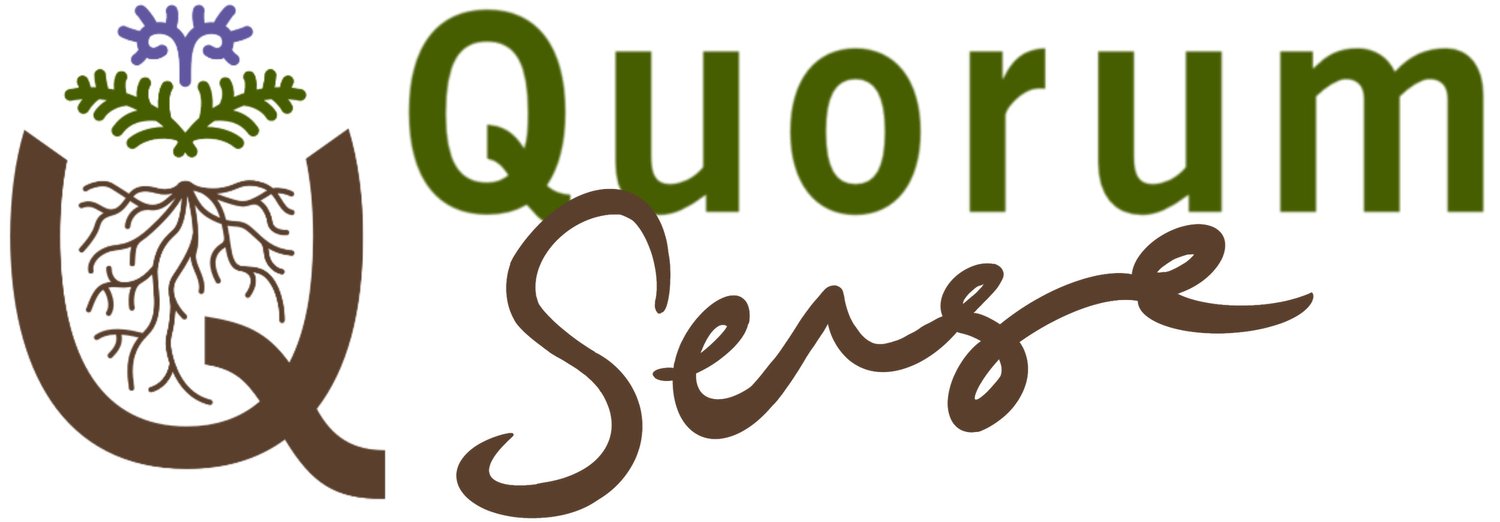Tomtit Farm - Connecting producer, consumer and nature
As part of the Quorum Sense Farm grown community case study we wanted to go back to grass roots, small scale farming to provide nutrient dense locally grown produce for kiwi communities.
Tomtit Farm is a 1,300 sqm market garden in the suburb of Matangi on the outskirts of Hamilton, Waikato. Tomtit is owned and operated by Brit Morrison with her family, husband James and Brit’s parents, Stephen and Toni.
The farm has been operating with a community supported agriculture (CSA) model, growing seasonal vegetables and flowers for 40 families each week. When asked for Brit’s definition of CSA she said, “A CSA is essentially a direct relationship between a customer or the community and the farmer within an area. The farmer grows food, and they have a community behind them who is invested in the whole season.”
“A CSA is essentially a direct relationship between a customer or the community and the farmer within an area. The farmer grows food, and they have a community behind them who is invested in the whole season.”
Brit Morrison, Tomtit Farm
Discovering Tomtit Farm: A model of Community-Supported Agriculture
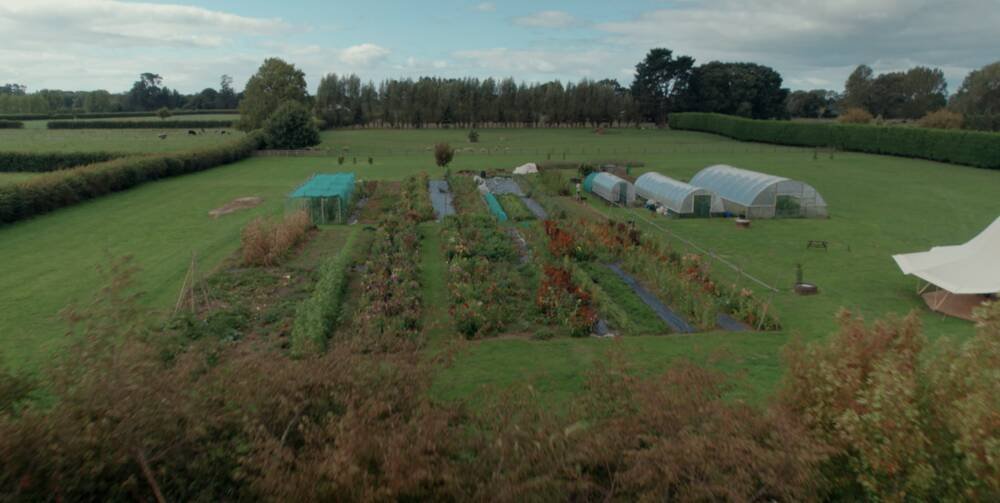
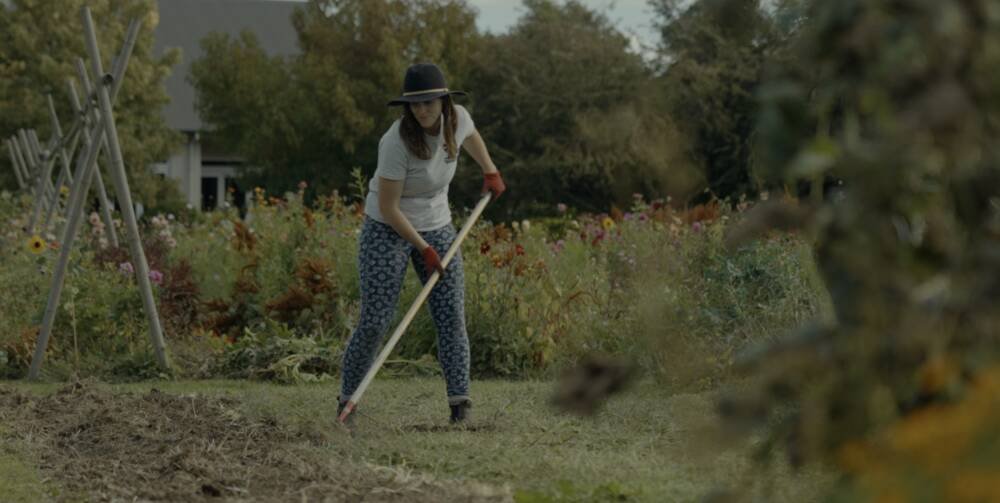
At Tomtit Farm, nestled in the heart of the Waikato, the essence of community supported agriculture (CSA) comes to life. This vibrant farm isn’t just about growing fresh produce; it’s about cultivating connections and community - between the land, the crops, and the people who nurture and enjoy them.
Led by Brit Morrison, the farm is run in a way that is divided into three growing seasons for buyers to commit to - summer, spring and winter. Her community receives weekly produce and she receives a consistent income; a largely new concept to New Zealand market growers but one well accepted overseas.
Brit also sells produce (including flowers and seeds) via an honesty farm fridge, cafes and local retailers. She grows all the vegetables for a local, 8 seater restaurant, The Green in Hamilton East which champions local food, just 6km away from the farm.
Building a community around food
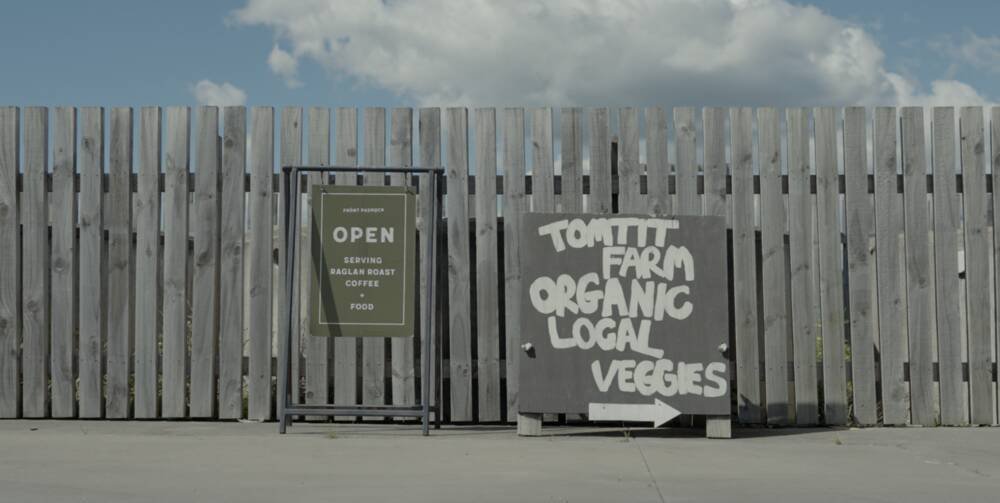
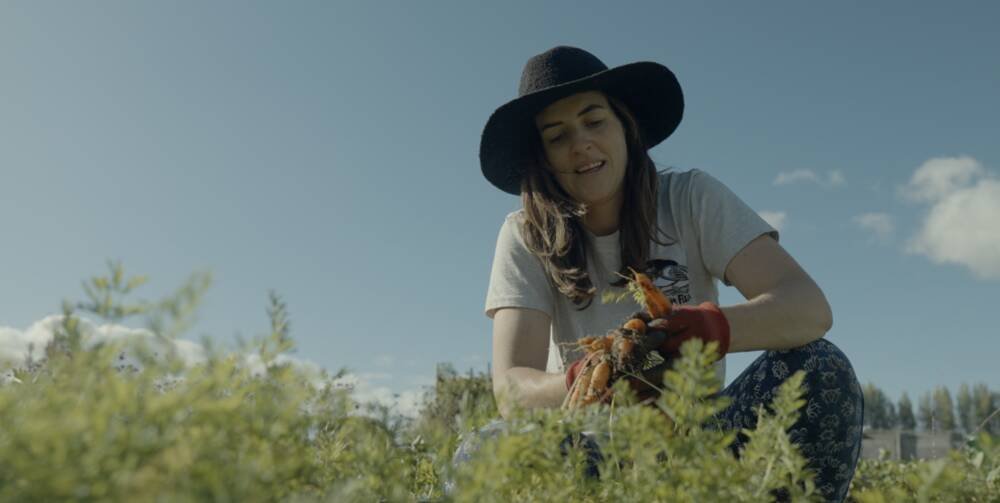
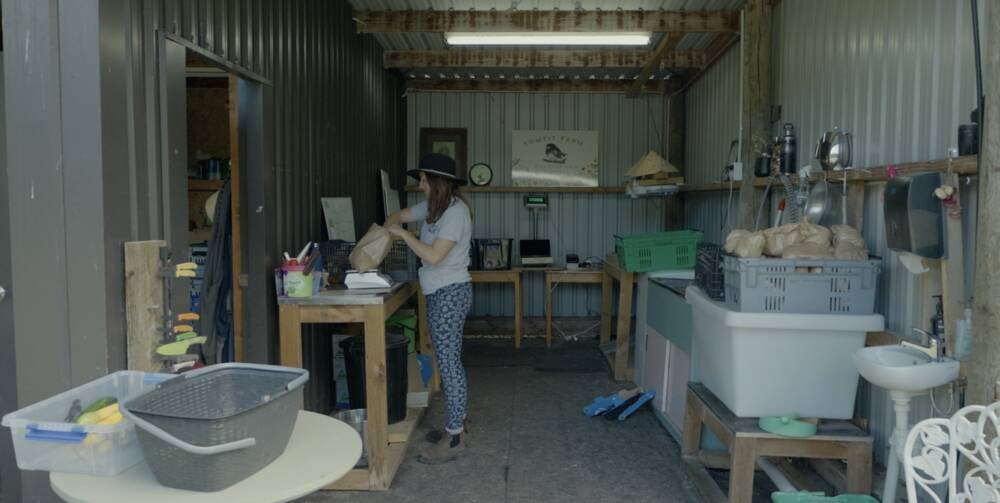
At the core of Tomtit Farm's philosophy is the belief that healthy food can only be produced in harmony with healthy soil. The farm invites local residents to become more than just customers; they are partners in the journey. By participating in the CSA model, members receive regular shares of the harvest which not only supports the farmers but also fosters a deeper understanding of the food system.
“It's really important for me to connect as a farmer to my community. We have a community Facebook group that all my customers join up to so that we can communicate together, ask questions. I can post what's happening in the garden each week and we also create and share recipes on that page and they get a recipe in their box as well” says Brit.
Connecting consumers with nature
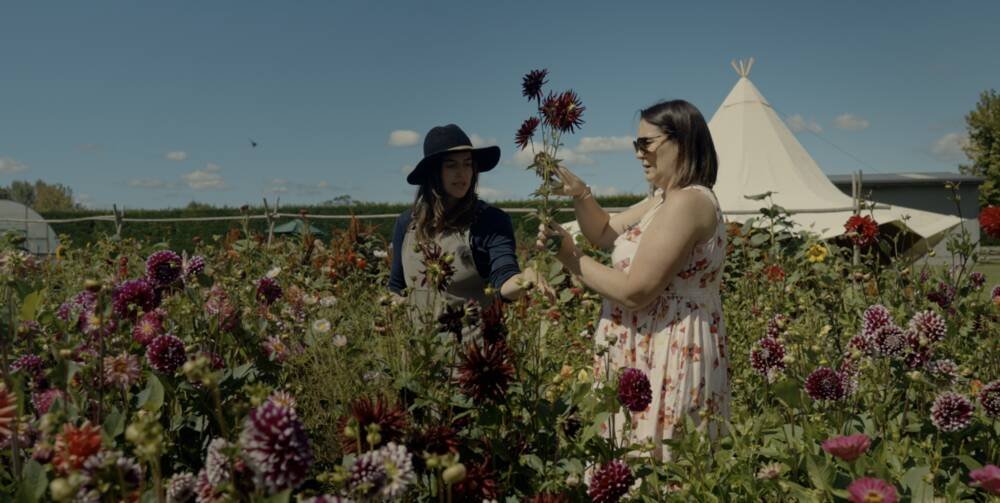

“I am passionate about bringing people into nature-based spaces so that they can really connect with nature,” Brit highlights. “We do that by growing flowers, and we only grow flowers for our community.
“We grow them for picking so people can come onto our farm, and then get a bucket and wander around the garden and be part of it. We've strategically placed the flower beds so that they're weaved amongst the vegetable beds.
“It's not like your flower farm's over here and your veggie farm's over here and they're quite separate entities,” she points out. “It's quite an intertwined space so that when people are walking and picking their flowers, they see the bees, the butterflies, and they see the cabbages growing and the basil and they know that it's an organic farm.
“They start to visualise and actually have that little connection with nature. That's why we do that. I like to think of it as lighting a little nature flame inside of them when they come into the space.
“We also run events as well. We collaborate with other local businesses to build more community around that. We run yoga mornings, ‘build your own planter box’ workshops, pottery workshops, a watercolour painting one where people can pick flowers from the garden and veggies and paint a watercolour picture, and stuff to unlock that creative flair in the child of people. I think that has a really important place with that connection to nature.”
Innovative in sustainable growth, learning and engagement
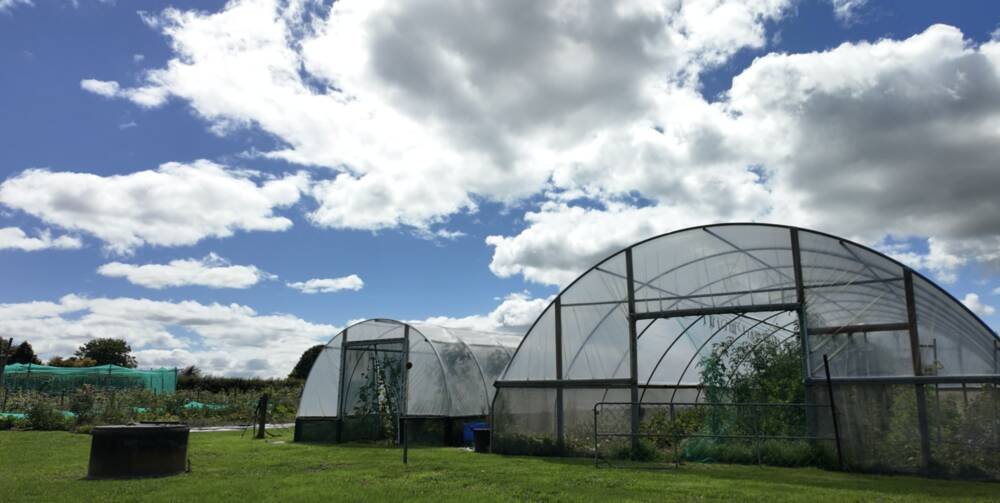
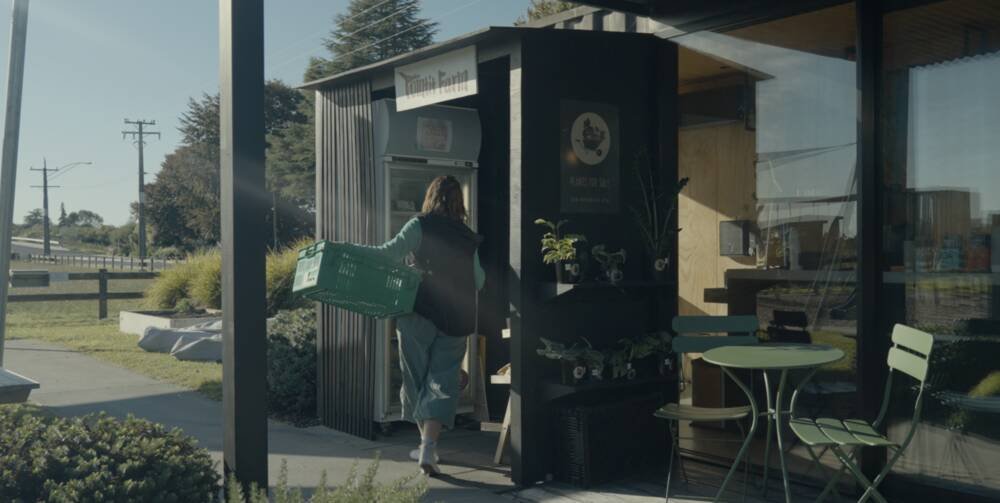
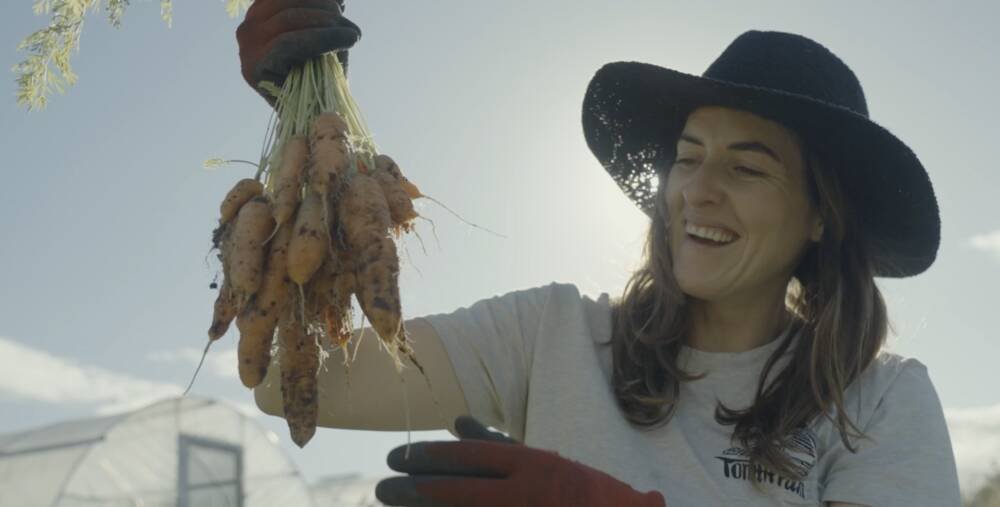
Tomtit Farm employs organic, regenerative agricultural practices to ensure that the soil remains fertile and resilient.
This approach goes beyond conventional farming techniques, focusing on biodiversity, soil health, and sustainable water use. By embracing these methods, the farm not only produces highly nutritious food but also contributes to the ecological well-being of the region, highlighted clearly with the amount of insect life on the property.
Tomtit Farm is more than a place to grow food; it’s a hub for learning and community engagement. Workshops and farm tours invite people of all ages to connect with the land, get creative, and understand the importance of sustainable farming practices. By sharing knowledge and experiences, the farm empowers individuals to take charge of their food sources and promote healthy living.
“I am passionate about bringing people into nature-based spaces so that they can really connect with nature,” Brit highlights. “One of the ways we do that is by growing flowers, and we only grow flowers for our community.”, “We've strategically placed the flower beds so that they're weaved amongst the vegetable beds.”.
As customers come and pick their own flowers, they come to understand the harmony between all parts of the ecosystem Brit is creating.
Not without its challenges..
“The most challenging barriers? You can always start with the weather! It's always going to be a barrier in farming and growing food - you're at the mercy of weather.”
Brit has certainly had some challenges when it comes to crippling frosts and cyclones that have worked hard to wipe out the garden. Also learning and figuring out what grows in the specific environment, “That's definitely been a learning curve,” she admits.
Another factor to consider strongly is relationships. The core business is based on trust, understanding her consumers, and building confidence in her ability to grow and deliver.
“We really had to build that trust before we could take on a huge community. CSA in New Zealand is a bit of a foreign concept. It's big overseas, but even now we're still articulating and communicating what it is, and I think that will take a bit of a mind shift,”
For a farmer to consider CSA, Brit attests to the fact that it is the best business model because:
You have a direct relationship with your consumer, there's no middleman.
You get 100% of the margin.
You can choose how far your food travels and how easy and convenient you want to make that for yourself.
You have a guarantee that all the food you're growing for that season is going to get sold.
You're not going to have any waste
You don't have to worry about price fluctuations
You set the price at the start of the season.
Join the movement
For those passionate about market gardening and sustainable agriculture, Tomtit Farm serves as an inspiring example of what can be achieved through collaboration and commitment to the land and community. Whether you’re a seasoned grower or just starting your journey, the lessons and initiatives at Tomtit Farm offer valuable insights into building a resilient agricultural community and show a successful example of how market gardens can be set up to be viable businesses across Aotearoa.
For more information, visit the Tomtit Farm website.
Related content on: marketing, community
Disclaimer: The information, opinions and ideas presented in this content is for information purposes only and does not constitute professional advice. Any reliance on the content provided is done at your own risk. (click here to view full disclaimer).
